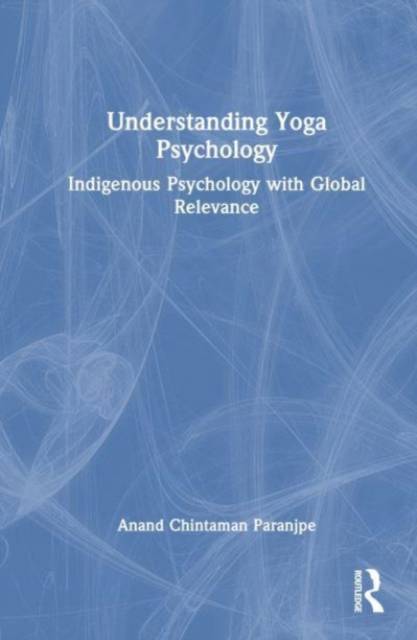
- Retrait gratuit dans votre magasin Club
- 7.000.000 titres dans notre catalogue
- Payer en toute sécurité
- Toujours un magasin près de chez vous
- Retrait gratuit dans votre magasin Club
- 7.000.0000 titres dans notre catalogue
- Payer en toute sécurité
- Toujours un magasin près de chez vous
Understanding Yoga Psychology
Indigenous Psychology with Global Relevance
Anand C ParanjpeDescription
This book is an introduction to Patañjali's Yoga Sūtras and its core concepts about the self, suffering and consciousness. It highlights its relevance to contemporary theories and applications in the fields of psychology and health.
The book adopts sociology of knowledge as a broad framework as it delves into the core concepts of yoga psychology in the Yoga Sūtras in the context of worldviews and frameworks present in the Upanisads and the Sāṁkhya system. It provides an interpretation of Kriya Yoga and its practice in pursuit of spiritual upliftment, and concept of Samādhi or the transformation of consciousness using the language and idiom of contemporary psychology. It draws parallels between yoga psychology and the ideas of Husserl, Jung and Piaget while reconciling the seemingly disparate cultural, religious, spiritual, and intellectual traditions of eastern spirituality and schools of modern psychology. The book also discusses yoga psychology in relation to psychoanalysis, radical behaviorism as well as mainstream, cognitive, humanistic, transpersonal and indigenous psychologies and provides a guide to both the theories of yoga psychology and its applications.
This book will be of interest to students, teachers, researchers and practitioners of psychology, psychiatry, philosophy and yoga psychology as well as to psychologists, psychiatrists, counselors, mental health professionals, clinical psychologists, and yoga enthusiasts.
Spécifications
Parties prenantes
- Auteur(s) :
- Editeur:
Contenu
- Nombre de pages :
- 156
- Langue:
- Anglais
Caractéristiques
- EAN:
- 9781032376332
- Date de parution :
- 06-07-23
- Format:
- Livre relié
- Format numérique:
- Genaaid
- Dimensions :
- 156 mm x 234 mm
- Poids :
- 417 g

Les avis
Nous publions uniquement les avis qui respectent les conditions requises. Consultez nos conditions pour les avis.






